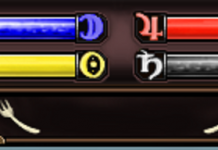В еврейской, латинской и православной Библиях текст 121 псалма, как и несколько предыдущих, назван песнью восхождения. Это означает, что он пелся левитами во время торжественного восхождения к иерусалимскому храму, происходившему во время больших религиозных праздников. В отличии от предшествующего, 120 псалма, 121-й написан не во время пребывания евреев в вавилонском плену, а после перенесения Кивота Завета, то есть уже после возвращения евреев из плена. Об этом говорит второй стих псалма «Вот, стоят ноги наши во вратах твоих, Иерусалим» (Пс. 121, 2) – в нем выражена радость человека, вернувшегося в родной город после долгой жизни на чужбине. Толкование 121 псалма свидетельствует о том, что его автором является Давид, при котором происходило восстановление второго храма и перенесение Кивота.
В каких случаях принято читать христианский псалом 121?
Автор текста 121 псалма описывает в нем красоты Иерусалима: в его словах чувствуется любовь человека, которому неоднократно приходилось быть изгнанником, и жить вдали от родного города. Псалмопевец видит в этом городе оплот крепости своего народа, и поэтому умоляет Бога благословить и сохранить его ради живущих в нем. В православной традиции читать и слушать онлайн текст 121 псалма принято для того, чтобы уберечь себя от сглаза.
Слушать на видео молитву псалом 121 на русском языке
Читать православный текст молитвы псалом 121 на русском языке
Песнь восхождения. Давида.
Возрадовался я, когда сказали мне: «пойдем в дом Господень». Вот, стоят ноги наши во вратах твоих, Иерусалим, — Иерусалим, устроенный как город, слитый в одно, куда восходят колена, колена Господни, по закону Израилеву, славить имя Господне. Там стоят престолы суда, престолы дома Давидова. Просите мира Иерусалиму: да благоденствуют любящие тебя! Да будет мир в стенах твоих, благоденствие — в чертогах твоих! Ради братьев моих и ближних моих говорю я: «мир тебе!» Ради дома Господа, Бога нашего, желаю блага тебе.
Псалтырь, текст псалма 121 на церковно славянском языке
Возвеселихся о рекших мне; в дом Господень пойдем. Стояще бяху ноги нашя во дворех твоих, Iерусалиме. Iерслим зиждемый яко град, eмуже причастiе eго вкупе. Тамо бо взыдоша колена, колена Господня, свиденiе Израилево, исповедатися имени Господню; яко тамо седоша престоли на суд, престоли в дому Давидове. Вопросите же яже о мире Iерусалима; и oбилiе любящым тя. Буди же мир в силе твоей, и oбилiе в столпостенах твоих. Ради братiй моих и ближних моих глаголах убо мир о тебе. Дому ради Господа Бога нашего взысках благая тебе.
filosofia.ru
Psalm 121 is one of the most well-known Psalms in Judaism. It has become a prayer for protection and is one of the fifteen Psalms referred to as “Psalms of Ascent.” There are differing opinions concerning the purpose for which these particular Psalms were written. The most accepted viewpoint is that they were written for the pilgrimage of those going up to the House of the Lord in Jerusalem at Passover, Shavuot (Pentecost), and the Feast of Tabernacles.
As we look toward the future, in these days when things are happening so suddenly, it’s hard for us to know what will happen next — except that God’s Word shows us clearly that there will be wars, earthquakes, and much suffering As we move further into these end times, we can see that the enemy of our souls is already increasing his resistance against the people of God. Sometimes we may ask, “Where will I be, what will I do, when all of these things take place?” and we can easily find ourselves in a state of anxiety and fear. In times like these, we can trust the promises of God that we see in this Psalm.
“I will lift up my eyes to the hills, from whence comes my help?” (v.1). As the Psalmist is looking at the mountains, he understands the dangers that he could meet along the way. At that time, walking along the roads was much more dangerous than today. The pilgrim would go on a journey that he knew was full of dangers from robbers, wild animals, weather, and injuries. As humans, it is easy for us to see the dangers, but not know how we would ever find help in any given situation.
The Psalmist continues, as if he is answering his own question: “My help comes from the Lord, Who made heaven and earth” (v.2). Thank God that when we need help, He brings people into our lives to assist us, but there are some difficulties and challenges we face that no man can help us with – situations that only God Himself is able to change. The Psalmist declares this amazing truth that God is the Creator of heaven and earth. If God is the Creator, is there anything that is too difficult for Him? Yeshua’s disciples understood this after they experienced threats on their lives and were told not to preach in the name of Yeshua. In Acts 4:24, we see in their prayer that they declared that God is the One Who created heaven and earth. They lifted up their eyes higher — toward the King of Kings Who created heaven and earth.
“He who keeps you will not slumber. Behold, He that keeps Israel shall neither slumber nor sleep” (vs. 3-4). The God Whom we serve does not slumber or sleep. He doesn’t have moments when He is catching a nap! His eyes are always upon us. In this Psalm, we see the word “shamar” used six times. In English, it is translated as “keeping or guarding.” Even when we go to sleep, He is awake and watching over us. This truth became real to me one night recently as I was walking along the beach, enjoying the safety and peace of my surroundings, while the sun was setting on the Mediterranean. As I watched the sea, I could see in the distance the Israeli Navy ship patrolling the coast. I understood that the peace that I was enjoying was because there was a defense force out there protecting us. This is what the Lord does for us. The enemy is always trying to harm God’s children, but He has His angels out there, protecting those who love Him. Not only is our God protecting His children, but according to this Psalm, He is protecting this nation. So let us rest in these promises every time that we see a difficulty or a danger. Let’s lift up our eyes higher — to the God of Israel.
— Dani Sayag
ns.mountcarmelsom.com










